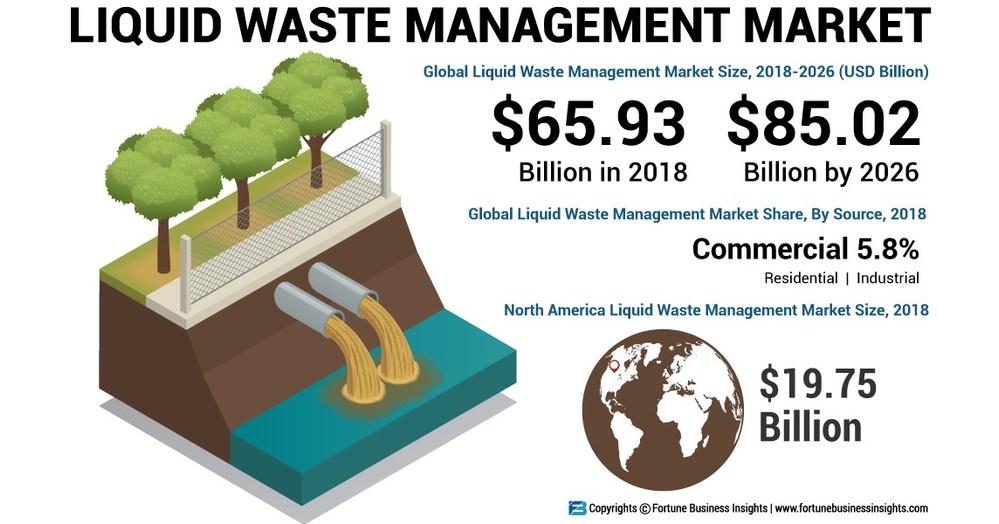The Only Guide to Reclaim Waste
The Only Guide to Reclaim Waste
Blog Article
Reclaim Waste - Questions
Table of ContentsReclaim Waste Things To Know Before You BuyReclaim Waste - The FactsRumored Buzz on Reclaim WasteThe 9-Second Trick For Reclaim WasteThe Definitive Guide to Reclaim Waste
Through appropriate fluid waste management, firms can decrease energy-intensive therapy procedures and disposal costs. By following a system for managing fluid waste, business can prevent expensive fines and fines and prevent unfavorable publicity.(https://businesslistingplus.com/profile/reclaimwaste1/)Gather representative examples from various points within the waste stream to make certain precision. Fluid waste, especially unsafe ones, presents substantial risks during this step.

is required when the effluent will certainly be recycled or discharged right into municipal pools. Disinfection (e.g., chlorination, ultraviolet light, ozonation) and nutrient elimination (e.g., denitrification and phosphorus removal) are suggested under strict laws. This phase in the procedure is purely regulated since it is when most dangers occur. Various companies violated numerous fluid waste disposal laws recently.
Reclaim Waste Fundamentals Explained

Shallow basins have liquid waste that is allowed to evaporate with all-natural processes. This kind of disposal is subject to strict ecological laws due to possibly harmful exhausts.
The findings should be documented, evaluated, and saved not simply for submission to governing authorities however also for making improvements in the future. Share info with relevant stakeholders (e.g., staff members, regulatory federal government agencies, and close-by neighborhoods) to preserve openness and responsibility.
Understanding these can assist them properly handle their operations and lessen their environmental influence. Companies that can not spend in centers ought to take into consideration teaming up with the public field for far better solutions.
The Ultimate Guide To Reclaim Waste
By carrying out thorough management systems that consist of treatment and reusing strategies, routine tracking, danger analyses, and adherence to local and government policies, commercial facilities can add to the defense of groundwater supplies, guaranteeing their accessibility for future generations (liquid waste disposal melbourne). Let's look into the significance of effective fluid waste administration in the industrial industry, concentrating on its effects for protecting groundwater sources
The pollution of groundwater resources because of incorrect fluid waste administration in the commercial industry has far-ranging repercussions for human wellness, agriculture, and the atmosphere in its entirety. Several of the possible impacts triggered by such contamination include: Infected Drinking Water Materials: As groundwater supplies a considerable portion of our drinking water, air pollution from commercial activities can lead to dangerous chemicals and microbes entering our water supply, posing health dangers for human beings.
Decreased Agricultural Productivity: Farming depends heavily on groundwater for irrigation; consequently, contaminated water can hinder crop returns, infect agricultural products, and affect food security. Given the importance of protecting groundwater sources, it is critical for businesses to take an aggressive position in managing their liquid waste sensibly and protecting against pollution.
About Reclaim Waste
Fluid waste can contaminate land and contaminate waters. Under the Protection of the Environment Workflow Act 1997, companies that create liquid waste are required to handle it in such a way that safeguards the environment and the area. Details regarding handling and keeping fluid waste, responding to spills and minimizing fluid waste is available in the complying with fact sheets and support:.
Water, the significance of life, is under consistent danger from contamination. The duty of waste website here administration professionals in securing this priceless resource can not be overstated. Their solutions include: Septic system and grease catch cleansing: Crucial for stopping dangerous pollutants from entering our water supply. Contaminated water and contaminated effluent management: Guaranteeing that unsafe fluids are safely eliminated and dealt with before they can harm our water resources.
Hence, integrating lasting liquid waste administration right into financial planning improves economic security and protects the atmosphere, showing the value of this technique. In verdict, taking on professional fluid waste management techniques is vital for guaranteeing a sustainable future, shielding our environment and securing the health of future generations - liquid waste disposal. At E&E Waste, we are committed to fostering a better tomorrow through responsible actions today.
When it involves throwing away waste, adhering to appropriate treatments is essential for a plethora of factors. Correct garbage disposal is not almost tidiness; it has to do with guaranteeing the well-being of our environment, health and wellness, and the reliable use resources. Comprehending the significance of efficient waste monitoring can help us all contribute to a healthier, cleaner planet.
Reclaim Waste Things To Know Before You Buy
Effective waste administration helps preserve tidy streets and public areas, reducing the aesthetic impact of litter and ensuring that waste does not damage wildlife. When waste is not disposed of effectively, it can lead to air pollution, where hazardous substances can leach into the soil, water systems, and the air, developing long-term ecological troubles.
Report this page